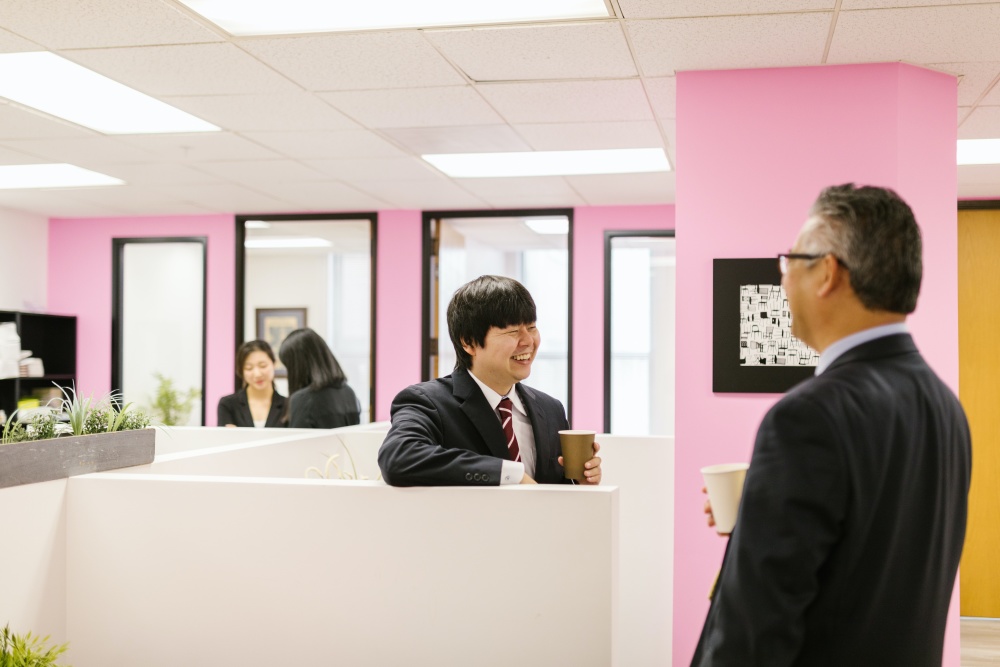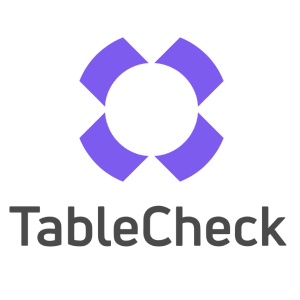Updated March 13, 2025
Vacation Days in Japan - 2025 & 2026 (Here's What People Miss...)
Working in Japan has its perks, and vacation days are one of them. Contrary to popular belief, you don’t have to work until you’re burned out to take a few days off.
In Japan, your vacation days are protected by the law. In fact, you actually get more national holidays than in the United States!
If you’re curious about how vacation days work in Japan, this post is for you. You’ll learn how many paid time-off days you’ll get, how to take them off, and other kinds of vacation days in Japan (like public holidays).
In this article: 📝
- Paid Vacation Days in Japan
- How Many Days Do People in Japan Get for Vacation in Total?
- Public Holidays in Japan
- Other Holidays in Japan
- Is There Sick Leave in Japan?
- How Does Taking Time off Work in Japan?
- Can I Take All of My PTO (Paid Time Off) Days?
- What Happens If I Don't Use My Days Off?
- Which Companies Offer Above Average PTO Days?
So how many days of paid vacation are mandated by law in Japan?
In Japan, you get a minimum of 10 days of paid vacation every year. This minimum is every full-time worker’s right, and it’s protected by the law.
And 10 days is just the starting point — full-time workers are entitled to more vacation days each year they continue to work at a company. After 6 and a half years at the same company, you’ll get at least 20 days.
And keep in mind, this is just the legal minimum — some companies offer extra days on top of that. You can check out Japan Dev if you want to find modern tech companies (many of them have generous vacation day packages).
Next, let’s look at Japan’s rules for paid vacation days in more detail.
Paid Vacation Days in Japan
As I’ve stated, the minimum amount is 10 days.
But that’s just the beginning. Some companies will award all or some of the days right when you join, but some other companies won’t give them to you until you’ve been working for 6 months.
Here’s how the minimum paid time off system is designed:
After 6 months of work, you get 10 days.
After 1.5 years of work, you get 11 days.
After 2.5 years of work, you get 12 days.
After 3.5 years of work, you get 14 days.
After 4.5 years of work, you get 16 days.
After 5.5 years of work, you get 18 days.
After 6.5 years of work, and in the following years, you get 20 days.
As you can see, you get 10 days off after working for 6 months (unless the company awards them early, which many international companies do). This number starts increasing slowly during your first years in the company, and you gain even more days in the later years.
You’ll have a minimum of 20 days of paid vacation per year after working full-time for 6.5 years for a company.
How Many Days Do People in Japan Get for Vacation in Total?

Based on the above, you might think Japan's paid time off perks aren't so impressive. Especially compared to companies in certain regions, like Europe. But don’t worry. That’s not all you get.
Now that you’ve learned your legal rights for paid time off, let’s move on to the additional vacation days you’ll get in Japan.
Japan has many holidays and public celebration periods that’ll give you additional time to kick back and relax.
Public Holidays in Japan
You’ll be glad to know that there are 16 public holidays in Japan. And pretty much every company in Japan will allow you to take these days off in addition to your paid time off days.
Technically, employers aren’t obligated by law to pay you on national holidays. But in practice, the vast majority do. So if you encounter a company that doesn’t, be careful — there’s a good chance it’s a Japanese “black company”. You can read more about these companies in my blog post here.
That’s a rare exception though. As long as you do your research, when you add paid time off and national holidays, you’ll end up with at least 26 vacation days total.
Also, these 16 public holidays are spread out pretty evenly throughout the year. That means you’ll have quite a few 3-day weekends if you work in Japan (at least one nearly every month).
Here’s a list of Japan’s public holidays in 2025 :
| Date | Day of The Week | Public Holiday |
|---|---|---|
| January 1 | Wednesday | New Year’s Day |
| January 13 | Monday | Coming of Age Day |
| February 11 | Tuesday | National Foundation Day |
| February 23 | Sunday | The Emperor’s Birthday |
| February 24 | Monday | Holiday due to The Emperor’s Birthday |
| March 20 | Thursday | Vernal Equinox Day |
| April 29 | Tuesday | Shōwa Day |
| May 3 | Saturday | Constitution Memorial Day |
| May 4 | Sunday | Greenery Day |
| May 5 | Monday | Children's Day |
| May 6 | Tuesday | Holiday due to Greenery Day |
| July 21 | Monday | Marine Day |
| August 11 | Monday | Mountain Day |
| September 15 | Monday | Respect for the Aged Day |
| September 23 | Tuesday | Autumnal Equinox Day |
| October 13 | Monday | Health and Sports Day |
| November 3 | Monday | Culture Day |
| November 23 | Sunday | Labour Thanksgiving Day |
| November 24 | Monday | Holiday due to Labour Thanksgiving Day |
And here’s a list of Japan’s public holidays in 2026 :
| Date | Day of The Week | Public Holiday |
|---|---|---|
| January 1 | Thursday | New Year’s Day |
| January 12 | Monday | Coming of Age Day |
| February 11 | Wednesday | National Foundation Day |
| February 23 | Monday | The Emperor’s Birthday |
| March 20 | Friday | Vernal Equinox Day |
| April 29 | Wednesday | Shōwa Day |
| May 3 | Sunday | Constitution Memorial Day |
| May 4 | Monday | Greenery Day |
| May 5 | Tuesday | Children's Day |
| May 6 | Wednesday | Holiday due to Constitution Memorial Day |
| July 20 | Monday | Marine Day |
| August 11 | Tuesday | Mountain Day |
| September 21 | Monday | Respect for the Aged Day |
| September 22 | Tuesday | National People’s Day Holiday |
| September 23 | Wednesday | Autumnal Equinox Day |
| October 12 | Monday | Health and Sports Day |
| November 3 | Tuesday | Culture Day |
| November 23 | Monday | Labour Thanksgiving Day |
Other Holidays in Japan
In addition to the holidays above, there are a few more vacation periods you’ll enjoy in Japan.
Golden week is a series of public holidays that are often bunched together, even if there are working days in between. While the dates may slightly change every year, it usually starts at the end of May and the beginning of June.
Please note: Golden week is a collection of existing public holidays, so it’s included in the 16 days above. But some companies will give extra days off during this time in addition to the 16.
During Golden week, the government sometimes declares the working days in between the public holidays as vacation days. It depends on the year, but Golden week may last as long as 9-10 days, including the weekends.
Silver week is another series of public holidays that are very close to each other. It’s always in September, but it doesn’t happen every year since the Autumnal Equinox is celebrated on different dates each year. In 2026, however, Silver Week will be celebrated in addition to Golden Week.
Most companies also give days off for the end of year holiday. Even though this period is not a public holiday, almost all tech companies in Japan give you days off between December 28th and January 4th.
Usually this translates to 3 extra days off (so 29 total with PTO days + public holidays + year-end holidays).
Lastly, it’s common for companies in Japan to provide additional paid time off during summer. This is not included in your regular paid time off. It’s an extra vacation time companies offer to their employees in addition to their paid time off days.
This also tends to be a period of 3 days, bringing the grand total to 32 days.
Not bad right? Well, there are a few other factors that you should know about.
Is There Sick Leave in Japan?
Unfortunately, separate sick leave is not common in Japan.
In international companies and cutting-edge Japanese startups, you can sometimes find it. For example, Mercari offers 10 days of sick leave in addition to all of the above. But it’s still pretty rare.
Of course, that doesn’t mean you have to work when you’re sick. It just means you’ll have to use your paid vacation days instead. And if you run out of those, you’ll have no choice but to start using unpaid vacation days (at most companies).
I know that’s not ideal, but you can always work at an international company with a more generous sick leave policy. Then you’ll get all of the above as well as the peace of mind that comes with sick leave.
How Does Taking Time off Work in Japan?

Taking some time off is your right as an employee. If you have paid vacation days left, you may think you can take them whenever you want. But in Japan, companies have the right to object to employees' time off requests.
You can use paid leave days, but again, this depends on the company where you work. It’s possible that they might ask you to change your dates.
Most people in Japan allow some flexibility when requesting leave. If multiple people from the same department want the same week off, people may voluntarily change their vacation dates.
Yet, sometimes a lot of people take days off simultaneously. This usually happens around public holidays. Companies may even shut down for a few days while the employees are on leave so they don’t waste resources while understaffed and underpowered.
As for the process of taking paid leave, it’s not much different than anywhere else. You’ll have to formally request leave by filling out a form or writing a letter to HR. Some companies ask you to provide a request at least a few days earlier, but others are OK with shorter notice.
If your company does not allow short notice leave requests, you can communicate with HR. If you get sick or have an emergency, they can make an exception and give you the day off.
There are also some other nuances regarding the Japanese workplace culture that you may want to learn about. I wrote extensively about it in my blog post on how to survive Japanese workplace culture.
Can I Take All of My PTO (Paid Time Off) Days?
The answer to this question is rather simple at the surface level. Of course, you can use all your days off — you’ve earned it!
But in practice, the culture around paid vacation days is a bit more complex in Japan.
Generally, Japanese people have a hard time taking all of their paid vacation. In fact, most Japanese people don’t use them all. Nothing is stopping you from using all of your PTO days, and if you’re a foreigner then there’s a lot more leniency. But still, be sure to check with your co-workers to avoid potential workplace drama.
You can read more about navigating these cultural issues in this post: the tricky parts of navigating a Japanese workplace.
What Happens If I Don't Use My Days Off?

If you don’t feel like using all your paid vacation days, don’t worry. Your earned days off will accumulate and carry over to the following year. However, there is a limit.
You need to use at least 5 paid vacation days every year. In fact, your employer will get a fine if you don’t use at least 5 days in a given year.
Once you use at least 5 days, the rest of the vacation days you gain can carry over to the next year. But keep in mind: there’s an expiration period for this. According to the Japanese Labor Standards Act, your days off can carry over into the next year, but that’s it.
If you don’t want your accumulated days off to go to waste, use all the vacation days you’ve gained in a maximumoftwo years.
So what happens if you quit your job?
If you have paid vacation days you haven’t used and you leave your job, you need to spend those days. Otherwise, you’ll lose them. In Japan, it’s rare for companies to pay employees for unused days off when leaving, so most people just take their remaining days before officially leaving.
You may find this unfair at first, but there’s a reason for it. The law doesn’t allow you to cash in paid days off to protect your right to take a break.
Japanese workers may have a hard time taking their well-deserved paid days off, so the law ensures the employer provides this benefit in the way it’s intended.
Which Companies Offer Above Average PTO Days?
As I conclude today’s post, I want to mention a few companies you might want to learn about. These companies provide more paid vacation days than what is traditional in Japan.
The first company to mention is Indeed. You’re probably familiar with Indeed — they’re one of the largest job-seeking websites in the world. Indeed has an “unlimited paid time off” policy. That means employees get to take time off whenever they want, as long as it’s planned and doesn’t disrupt business.
Then there’s Kraken Technologies, an energy-tech company. They offer a whopping 25 days of PTO annually.
Another company to mention here is Moneytree. Moneytree provides 20 days of annual paid time off. And they also provide 10 days of sick leave, which is not common in Japan.
The last company I’ll mention that has great PTO benefits is Abbeal. Abbeal is a software engineering company, and they provide 15 days of PTO in the first year of employment. After the first year, the company gives 20 PTO days in addition to all public holidays.
While these are not the only companies with great PTO benefits, they stand out. You can also find many other companies with great benefits on the company list of the Japan-dev website.
P.S Want to work at a tech company with great work-life balance ? Check out our curated list of software developer jobs in Japan.
Get Job Alerts
Sign up for our newsletter to get hand-picked tech jobs in Japan – straight to your inbox.







